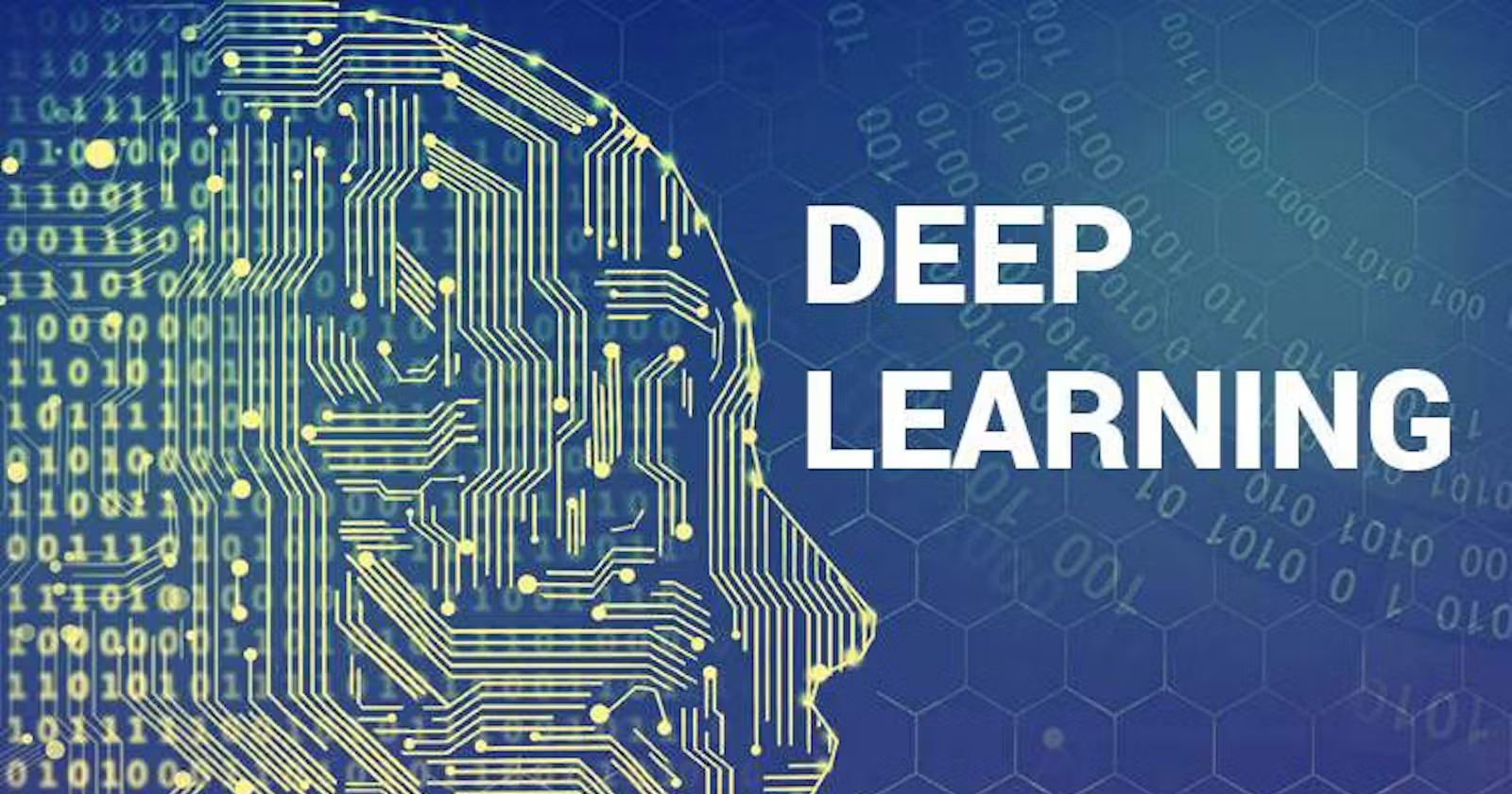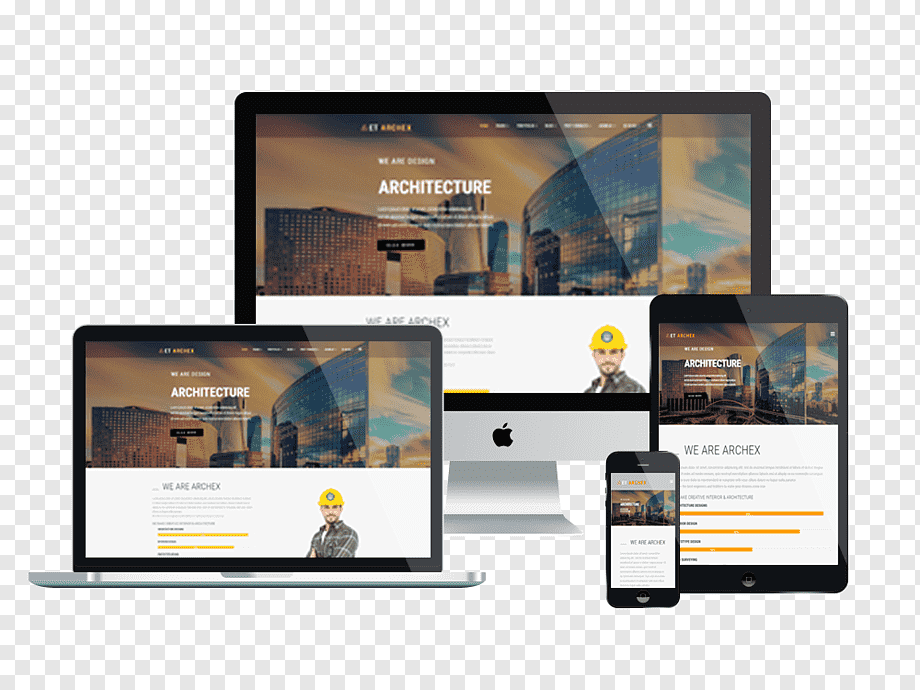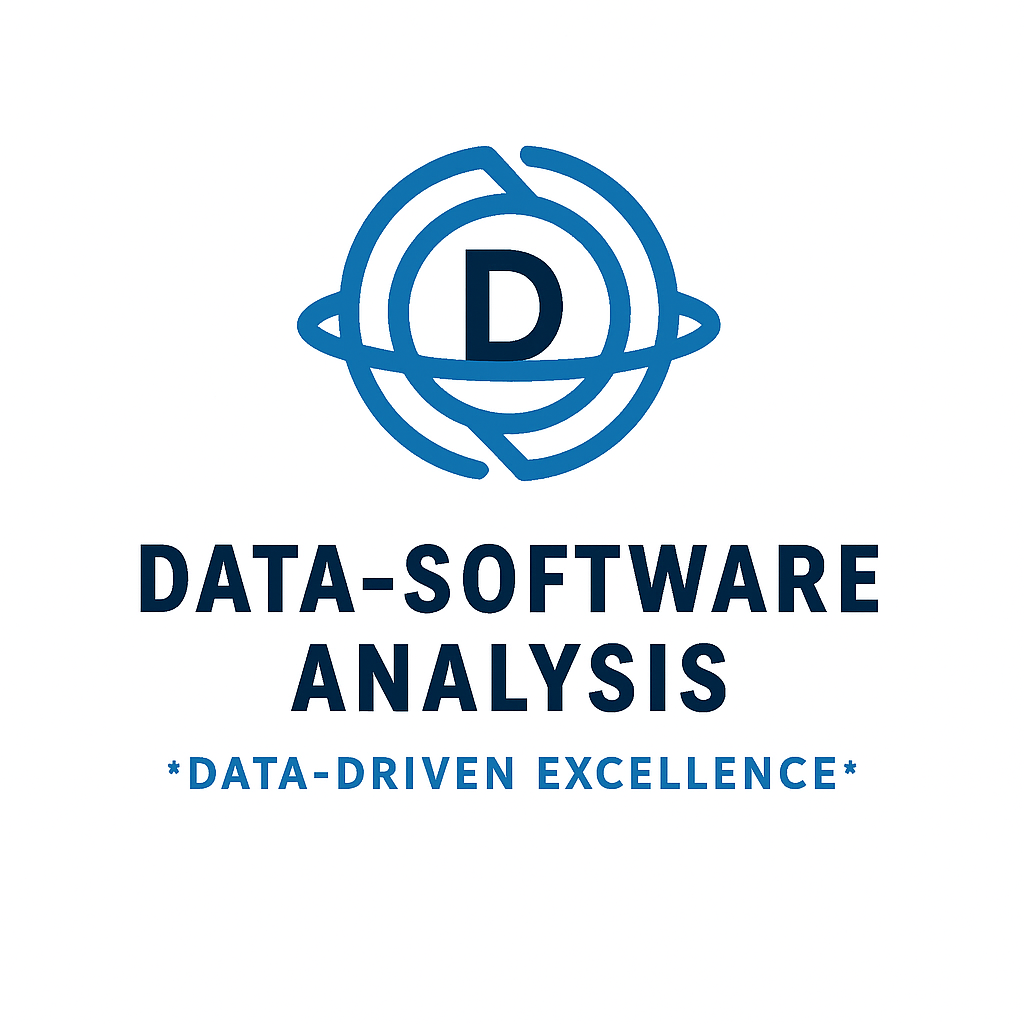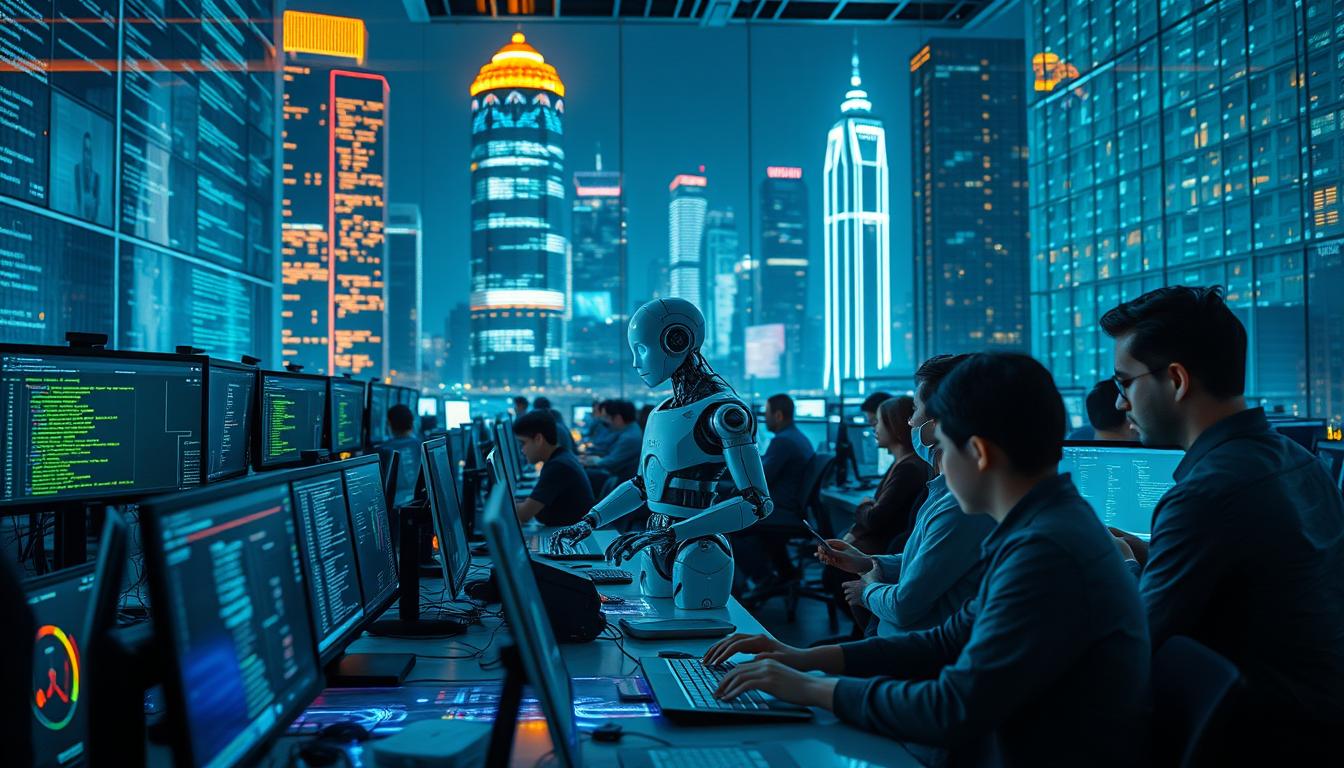
"The Impact Of AI on Software Development in 2025"
AI is changing how we make, test, and use software. By 2025, ai in enterprise software development will be the norm. Tools will automatically write code and makeai-driven saas applications better.
From ai and software microservices to ai in low-code development, smarter systems are becoming more common. Teams are using ai for full-stack development. This improves everything from backend to ai for frontend optimization.
Developers around the world are using ai-powered ui/ux tools and ai-driven chatbot development to make work easier. Trends like ai in java programming and ai for python development show AI's role in core languages. This change impacts coding, ai in continuous delivery pipelines, and aiops for better IT management.
Key Takeaways:
1.AI transforms ai and ar/vr software solutions and ai in blockchain
development.
2.Tools like ai in cross-platform development reduce time-to-market for apps.
3. Ai for cybersecurity software and ai in iot software development enhance
security and
scalability.
4. Ai-driven automation testing and ai for software debugging improve code
quality.
5. Enterprises prioritise ai-powered cloud-native applications and ai in fintech
applications.
The Evolution of AI in Software Development:
AI has changed how we build software, from coding to system design. Now, AI tools automate tasks that used to take hours. This makes development more efficient.
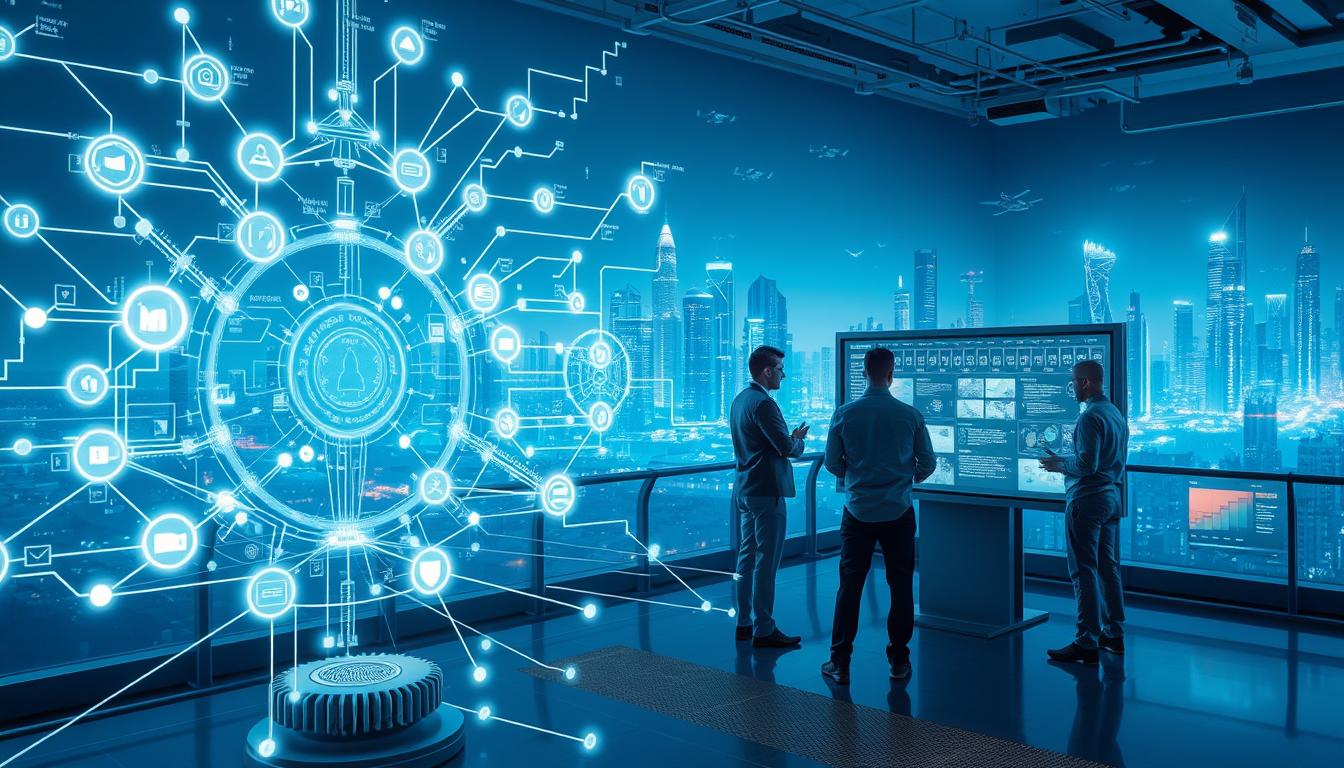
Emergence of AI Technologies in Coding:
Today's coding environments use AI to boost productivity. AI-driven API development and AI in serverless computing help developers innovate. They also improve AI-powered database management , keeping data safe without constant checks. Key advancements include:
1. Automated code suggestions using AI and NLP in software automation.
2. Real-time error detection through AI in data science programming.
From Traditional to AI-Driven Software Architectures:
Old architectures are being replaced by smarter systems. AI and edge computing
software cut
down latency for IoT devices. AI in 5G software applications speeds up data
processing.
Modern frameworks use AI-powered big data analytics to handle large datasets easily.
Key
shifts include:
1. Adoption of AI-driven open-source development tools for team projects.
2. Integration of AI in creative coding and design for unique solutions.
Influence on DevOps and Agile Methodologies:
DevOps pipelines now use AI for predictive software analytics to spot issues early. AI-powered software decision-making tools speed up testing. AI-driven digital transformation makes deployment faster. Agile teams use AI to:
1. Automate repetitive tasks with AI and robotic process automation (RPA).
2. Optimise ERP software optimization with real-time insights.
AI is more than a tool; it's a fundamental change shaping software's future.
How AI is Changing Software Development in 2025:
By 2025, ai in software development is key to innovation. It changes how teams build, test, and deploy apps. The financial times and business insider show how ai coding tools 2025 make workflows smoother, from start to finish.
Key AI-Driven Trends Shaping the Future:
1. Generative AI makes ai-driven code generation faster, freeing up time for more complex
tasks in ai in mobile app development.
2. Ai coding assistants now do 40% of debugging, as wsj reports. Ai-enhanced development
environments also improve teamwork in real time.
3. MACHINE LEARNING IN SOFTWARE ENGINEERING helps predict problems in ai in software
maintenance and finds security risks.
Implications for Developers and Project Management:
Teams focus on ai and agile methodologies now. Ai and software project management tools like ai-driven development tools make planning easier. Developers focus on strategy, not just coding.
Axios says there's a 30% increase in ai in devops use. This cuts down deployment times by half.
Full-Stack and Backend Transformations:
Full-stack developers use ai in software design for quick prototyping. Backend teams use ai for bug detection instantly. The australian shows how ai software development lifecycle tools cut manual testing by 60%, speeding up development.
Even old systems get a boost with ai in software security. This keeps them up to date with global standards.
These changes are changing innovation. From ai in user experience design to ai-driven code generation, AI is already shaping our future.
Innovative AI-Driven Tools and Practices:
AI is changing software development with tools that focus on efficiency and new ideas. These tools make user interactions smarter and workflows more automated.
AI-Powered UI/UX and Chatbot Development:
AI chatbots now offer custom user experiences. Tools like Dialogflow and Watson Assistant use AI to make interactions more personal. Wired says 70% of startups use AI for chatbots, making customer interactions better without coding.
Enhancing Code Optimisation and Debugging:
AI tools can check code in real time and find errors before they cause problems. Platforms like DeepCode and Kite make debugging 40% faster than old methods. AI also helps cut costs and improve quality assurance.
1. Automatic error detection.
2. Performance tuning through ai in software analytics.
3. 4x faster compliance checks with ai and software compliance tools.
AI in Low-Code, Serverless Computing and Cloud-Native Apps:
Low-code platforms like OutSystems use AI for quick app building. Serverless frameworks with AI save 35% on costs. AI also boosts cloud-native apps to handle more traffic than old systems.
Barron’s says 60% of companies use these tools for faster software development. This cuts development time by 50%.
Embracing the Future of Software Innovation:
Software ecosystems in 2025 are changing thanks to AI. AI helps in managing supply chains and
forecasting demand. It also makes smarter choices in buying and managing vendors.
Companies using AI in managing software assets and licensing can make more money. They also
face less risk. India's tech sector is using these tools to make outsourcing better and
contracts easier to manage.
Innovation hubs and AI labs are helping startups grow fast. They use hackathons and teamwork
to speed up product making. People need to learn AI to keep up in their careers.
AI is now key in software research and development. It helps in getting patents and managing
intellectual property. This ensures labs focus on ethical innovation.
Investing in AI helps companies lead in mergers and acquisitions. This leads to a culture of
always getting better.
Working together is important for global teams using AI. They manage knowledge and risks
better. In India, software communities are linking schools and businesses, sharing
knowledge.
By using AI in all stages of software development, companies can change how they make
software. The future is for those who invest in AI research, educate talent, and join
innovation contests. They will shape tomorrow's tech world.
Er. Rushikesh Kekane
Founder & CEO
"DATA-SOFTWARE ANALYSIS"

